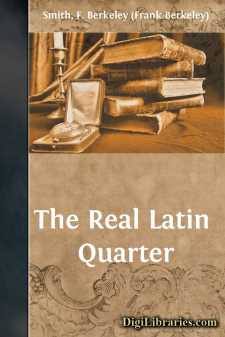Non-Classifiable
- Non-Classifiable 1768
Non-Classifiable Books
Sort by:
INTRODUCTION WHERE WE STAND TODAY WHAT WE HAVE The five states of Montana, Idaho, Washington, Oregon and California contain half the merchantable timber in the United States today—a fact of startling economic significance. It means first of all that here is an existing resource of incalculable local and national value. It means also that here lies the most promising field of production for all time....
more...
by:
Leon Benett
CHAPTER I.I.C.Cassini—Picard and La Hire—The arc of the Meridian and the Map of France—G. Delisle and D'Anville—The Shape of the Earth—Maupertuis in Lapland—Condamine at the Equator. Before we enter upon a recital of the great expeditions of the eighteenth century, we shall do well to chronicle the immense progress made during that period by the sciences. They rectified a crowd of...
more...
by:
Walter Hubbell
CHAPTER I. THE HOME OF ESTHER COX. Amherst, Nova Scotia, is a beautiful little village on the famous Bay of Fundy; has a population of about three thousand souls, and contains four churches, an academy, a music hall, a large iron foundry, a large shoe factory, and more stores of various kinds than any village of its size in the Province. The private residences of the more wealthy inhabitants are very...
more...
“Cocher, drive to the rue Falguière”—this in my best restaurant French. The man with the varnished hat shrugged his shoulders, and raised his eyebrows in doubt. He evidently had never heard of the rue Falguière. “Yes, rue Falguière, the old rue des Fourneaux,” I continued. Cabby’s face broke out into a smile. “Ah, oui, oui, le Quartier Latin.” And it was at the end of this crooked...
more...
LECTURE I INTRODUCTION Natural theology, and the three modes of handling it, the dogmatic, the philosophical, and the historical. The subject of these lectures is a branch of natural theology. By natural theology I understand that reasoned knowledge of a God or gods which man may be supposed, whether rightly or wrongly, capable of attaining to by the exercise of his natural faculties alone. Thus...
more...
Sir, The undersigned young men, citizens of the United States of America, now in Paris, have heard so much about the successful realisation of your scheme of international exchanges between France and their native land, that they are induced to take the liberty of requesting from you a narration of the results of your indefatigable exertions in the cause of science during the past twelve months. They...
more...
A Start in Life. I have entitled this little book "A Start in Life," because it conveys information which would enable any person possessing a small capital, with some industry, patience, and steady habits, to make a start in life which, humanly speaking, could not fail of success. The old countries of Europe contain a superabundant population; every branch of professional and commercial life...
more...
THE NEURASTHENIC DURING HIS INFANCY. The neurasthenic is born and not made to order, but it is only by assiduous cultivation that he can hope to become a finished product. To elucidate the fact presented by the latter half of the preceding sentence is the purpose of this little book. In telling a story it is always best to begin at the beginning. I shall start by saying that I was born poor and without...
more...
by:
George Thomas
THE TREATY, &c. THE Deputies of the Six Nations having, at their last Visit, agreed to release their Claim to all the Land on both Sides of the River Susquehanna, as far South as this Province extends, and to the Northward to those called the Endless Mountains or Kittochtinny Hills; in Consideration whereof, they then received a large Quantity of valuable Indian Goods for the Lands situate on the...
more...
by:
Augustin Calmet
INTRODUCTION. Among the many phases presented by human credulity, few are more interesting than those which regard the realities of the invisible world. If the opinions which have been held on this subject were written and gathered together they would form hundreds of volumes—if they were arranged and digested they would form a few, but most important. It is not merely because there is in almost...
more...











